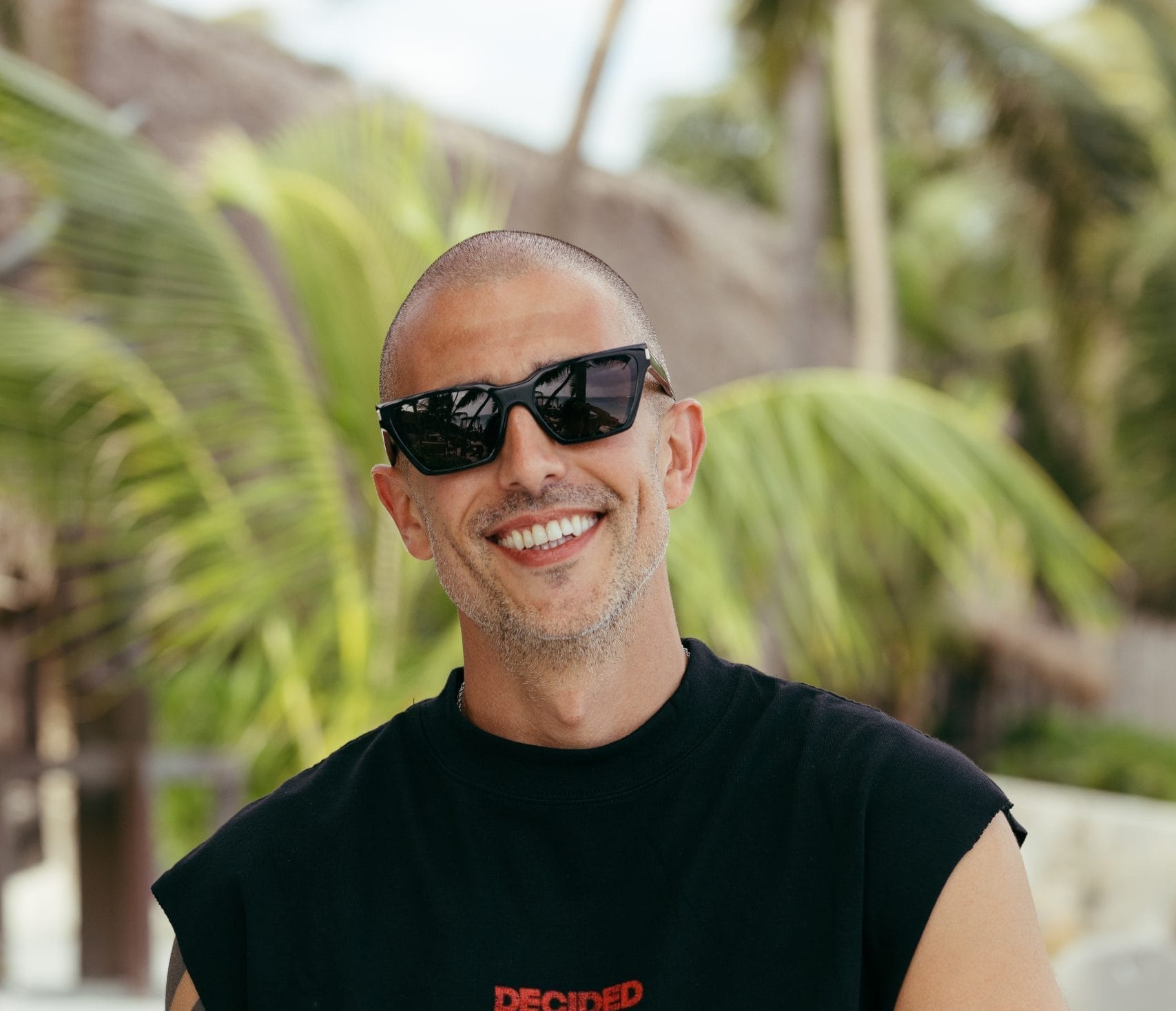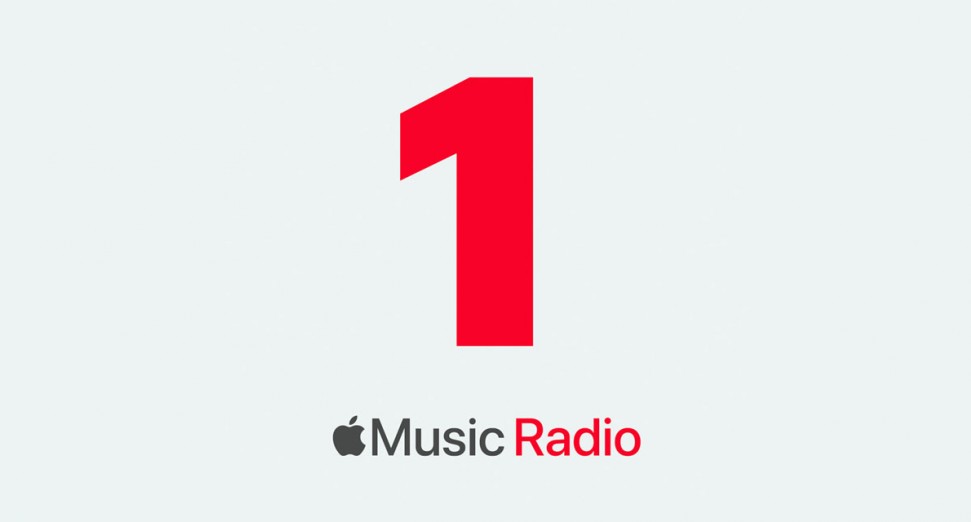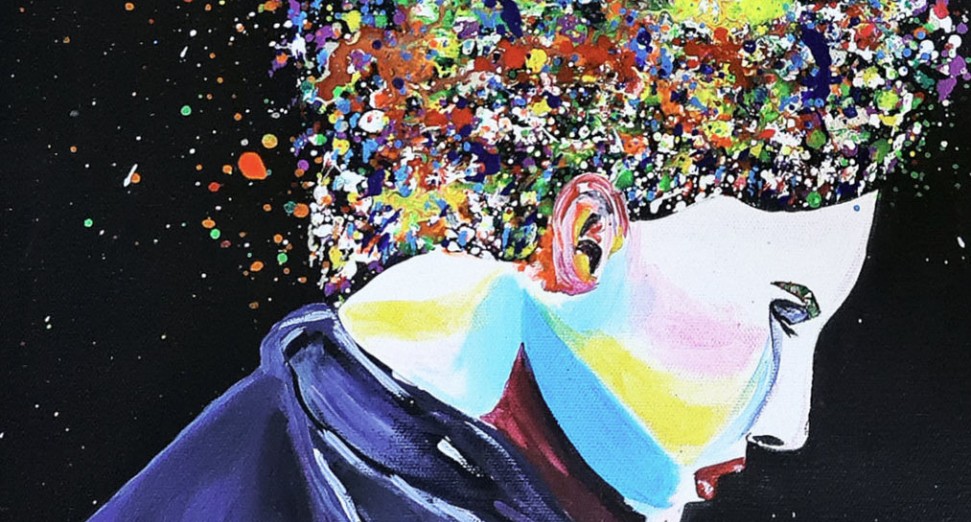
Caramel Sleep Token Lyrics And Meaning: When the Stage Becomes a Prison
Table of Contents
Image C/O RCA Records
Sleep Token’s “Caramel” dropped ahead of their upcoming album Even In Arcadia, and I’ll be honest—the first time I heard it, I wasn’t sure what to make of it. Sonically, it’s a pretty sharp turn away from their heavier sound. It’s slower, more melodic, more pop-forward, with moments that even lean into something like reggaeton.
That caught a lot of fans off guard. But once I sat with it—and more specifically, sat with the lyrics—I realized this track isn’t just experimenting with sound.
It’s quietly unraveling something personal. Something bitter, stuck, and slow-moving. Which, fittingly, makes “Caramel” a pretty perfect title.
There’s already been some speculation from fans that this song is a kind of indirect response to everything that happened last year—when private info about the band’s members was leaked online, including names, addresses, and documents. Sleep Token pulled their Instagram posts, scrubbed their socials, and basically went radio silent.
So it’s not a stretch to imagine “Caramel” as part of that fallout—a song shaped by a weird kind of betrayal, or at least the feeling of being overexposed. But this isn’t a diss track, and it’s not really a statement piece either. It’s more like someone whispering to themselves backstage. And in that quiet, you get these very small, heavy lines—“I thought I got better / But maybe I didn’t”—that carry more emotional weight than any scream ever could.
My background’s in English lit and creative writing, so naturally I’m always going to come at these songs a little sideways. The way I see it, this is a great excuse to pull in some references from modern poetry, literary fiction, and even the more introspective corners of philosophy to help make sense of what’s being said here. These are just my opinions, not definitive truths.
But if you’re curious about how a song like this holds up when you read it like a poem—and not just a track on a playlist—then I think you’ll find something interesting here.
Let’s break it down.
Caramel Sleep Token Lyrics And Meaning – At a Glance
- This isn’t the heavy Sleep Token sound you’re used to. “Caramel” leans more into pop—smooth vocals, sparse beats, clean hooks. If you’re expecting breakdowns, they show up for maybe 20 seconds and then disappear.
- It might be a response to last year’s privacy breach. Fans leaked personal info about the band in 2024, leading to a total social media wipe. A lot of people think “Caramel” is Vessel’s way of processing that fallout.
- Lyrically, it’s more internal than external. The song doesn’t lash out. Instead, it sits in emotional detachment and self-reflection—crying into the bassline, looking sideways in the mirror, wondering if healing even happened.
Caramel Sleep Token Lyrics
Caramel Meaning
“Count me out like sovereigns, payback for the good times”
This line kicks the song off with a strong message: the speaker feels used. A sovereign is an old gold coin, so saying “count me out like sovereigns” makes me think of someone being treated like money—not like a person. They’re being discarded after they gave others something good. The phrase “payback for the good times” suggests that even the happy moments came with a price. In my opinion, the speaker is starting off by telling us they’re tired of being valued only when it’s convenient for others.
That feeling—of being reduced to something useful and then left behind—shows up in the poems of Kaveh Akbar. In one of his pieces, he writes:
“I drank to disappear, but I kept being seen.”
Just like in Caramel, this shows how painful it is when people see the outside version of you but ignore what’s really going on underneath. The speaker in both works feels exposed and misunderstood.
Sleep Token brings that same truth here. From the first line, they’re asking: If you only want me when it’s easy, then what do I mean to you?
“Right foot in the roses, left foot on a landmine”
This image really stands out. It’s like the speaker is saying: One part of me is in something soft and beautiful, and the other is about to explode. In my opinion, this is a perfect way to describe what it feels like to live in two different emotional states at the same time. On the outside, things might look fine. But inside, there’s constant pressure and fear.
This is where Alice Notley’s poetry helps back that up. In The Descent of Alette, she writes:
“I was afraid, but I went anyway.”
Notley’s speaker walks forward even when she feels the danger. That’s what I see happening in this line from Caramel, too. The speaker is still standing, still moving—but with every step, they feel like something might break.
To me, this line shows that the speaker isn’t just dealing with sadness. They’re dealing with fear, risk, and the need to keep pretending everything’s okay—even when it clearly isn’t.
“They can sing the words while I cry into the bassline”
This line hits hard. I believe this is where the song shows its biggest emotional contrast. The audience is singing along—they’re enjoying the music. But the speaker? They’re crying into the bassline. That’s a deep image. It tells us that while people are dancing or vibing, the artist is breaking down.
This reminds me of a line from Pessoa’s The Book of Disquiet:
“I don’t know what I feel, I don’t know what I want.”
That’s the same kind of confusion and numbness the speaker in Caramel is dealing with. They’re surrounded by sound, lights, and attention—but none of it feels right. Instead of feeling proud or seen, they feel empty and sad.
I think this line reveals a painful truth: sometimes, when people celebrate your art, it only reminds you how alone you are in the feelings that created it.
“Stick to me like caramel”
The chorus brings in the title word, and it’s a smart choice. Caramel is sweet and sticky—it holds on. When the speaker says “stick to me like caramel,” I believe they’re asking for someone to stay close, even when things get hard. But this isn’t just a sweet love song. Right after that, the speaker says:
“Walk beside me till you feel nothin’ as well”
That flips the meaning. It’s not just about staying together. It’s about sharing the numbness. In my opinion, the speaker isn’t saying “stick with me and feel love.” They’re saying “stick with me and maybe we’ll both go numb.” That’s a dark but honest form of connection.
Here again, Akbar has a line that supports this reading:
“I carried my hurt like a bible in a country full of gods.”
To me, that means sometimes pain is all you have to offer, even in spaces that expect joy. The speaker in Caramel knows they don’t have light to give—but they’re still asking someone to stay with them, even in the dark.
“Looking sideways at my own visage, getting worse”
This is one of the most self-aware lines in the song. The speaker wants a mirror, but not to face themselves directly. They want to look sideways—as if they’re scared to really see what they’ve become. And they admit: it’s “getting worse.”
This moment reminds me again of Pessoa, who wrote:
“To think is to be sick in life.”
What he means, I believe, is that when you look too closely at your life, it can make you feel worse, not better. That’s exactly what the speaker in Caramel is going through. They’re not proud of what they see. They’re overwhelmed, and they don’t want to confront their own image fully.
To me, this section shows that the speaker isn’t just tired—they’re ashamed. They don’t feel like they’ve improved. They feel like they’re falling apart, slowly, and the worst part is that they see it happening.
“This stage is a prison, a beautiful nightmare”
This is the most powerful metaphor in the song. The stage—the place where the speaker performs—is both beautiful and a prison. That means it gives them something (maybe purpose, attention, even love), but it also traps them.
I see this as the speaker saying: People think I’m lucky to be here. But they don’t see what it costs me. That’s a big idea, and it shows up in Notley’s poetry too. In one moment, she writes:
“The system of beauty is always a lie.”
That’s a perfect match for this lyric. People see the beauty—the stage, the lights, the music. But they don’t see the pain behind it. The speaker is stuck between two truths: the stage gives them something they need, but it also drains them.
This part of the song is where the mask starts to come off. The speaker’s no longer just hinting at how bad things feel—they’re saying it out loud.
“I thought I got better, but maybe I didn’t”
The final lines of the song are the most quiet—but they carry the most weight. I believe this is the speaker being totally honest. They wanted to believe they had healed. But now, they’re not so sure. That kind of doubt runs through Pessoa’s writing, too. One of his most famous lines says:
“I’m nothing. I’ll always be nothing.”
I don’t think the speaker in Caramel is giving up—but they’re admitting something real: healing isn’t easy, and sometimes it doesn’t happen at all. This last line is about facing the truth. And sometimes, the truth is: I’m still hurting.
This ending isn’t loud. It’s not dramatic. But I think that’s what makes it powerful. It’s just a person, sitting with their pain, trying to figure out what comes next.
Connecting The Dots
If you’re coming to “Caramel” looking for a love song, you’re going to miss the whole thing. It’s not romantic, and it’s definitely not soft in the way the production might suggest. What I think it’s really doing is documenting emotional exhaustion—specifically, the kind that creeps in when you’re forced to stay visible even while you’re falling apart. This is the second single off Even In Arcadia, and coming off the back of everything that happened in 2024—the leaks, the bio change to “nothing lasts forever,” the full social wipe—I think it’s fair to read this as a reflection on that fallout. But the thing is, “Caramel” doesn’t name names.
It doesn’t rant.
It sits in the quiet aftermath.
You hear it in lines like “They can sing the words while I cry into the bassline”—that’s not bitterness. That’s someone acknowledging that the performance goes on, even when they’re not okay.
That exact kind of split—between what you feel and what people expect from you—is all over the work of Kaveh Akbar and Alice Notley. Akbar has this line I keep thinking about: “I drank to disappear, but I kept being seen.” That’s exactly what’s happening in “Guess that’s what I get for tryna hide in the limelight.”
The speaker doesn’t want attention anymore, but there’s no real way to step out of the spotlight once you’re in it. Notley goes even further—her whole poem Descent of Alette is about being stuck in a structure that watches you, uses you, and erases your inner life. When the speaker in “Caramel” sings “Looking sideways at my own visage, getting worse,” I think they’re hitting the same note. The version of themselves they’re stuck presenting isn’t holding up anymore, but they don’t know how—or maybe don’t feel allowed—to step away.
And if you really want to understand where this song ends up, I think Fernando Pessoa makes the best mirror. He has this line from The Book of Disquiet: “I don’t know what I feel. I don’t know what I want.” That’s the exact emotional register of “I thought I got better, but maybe I didn’t.”
It’s a realization.
And to me, that’s what gives this song its weight. The stage isn’t just metaphorical—it’s literal. Sleep Token are about to go back on tour. The new album’s dropping May 9. They’re still rising, still charting (midweek numbers had “Caramel” sitting at No. 4 in the UK). From the outside, it probably looks like everything’s going great. But what this song suggests—quietly, and without any dramatic punctuation—is that looking fine doesn’t mean feeling fine. And sometimes, that difference is the whole story.



